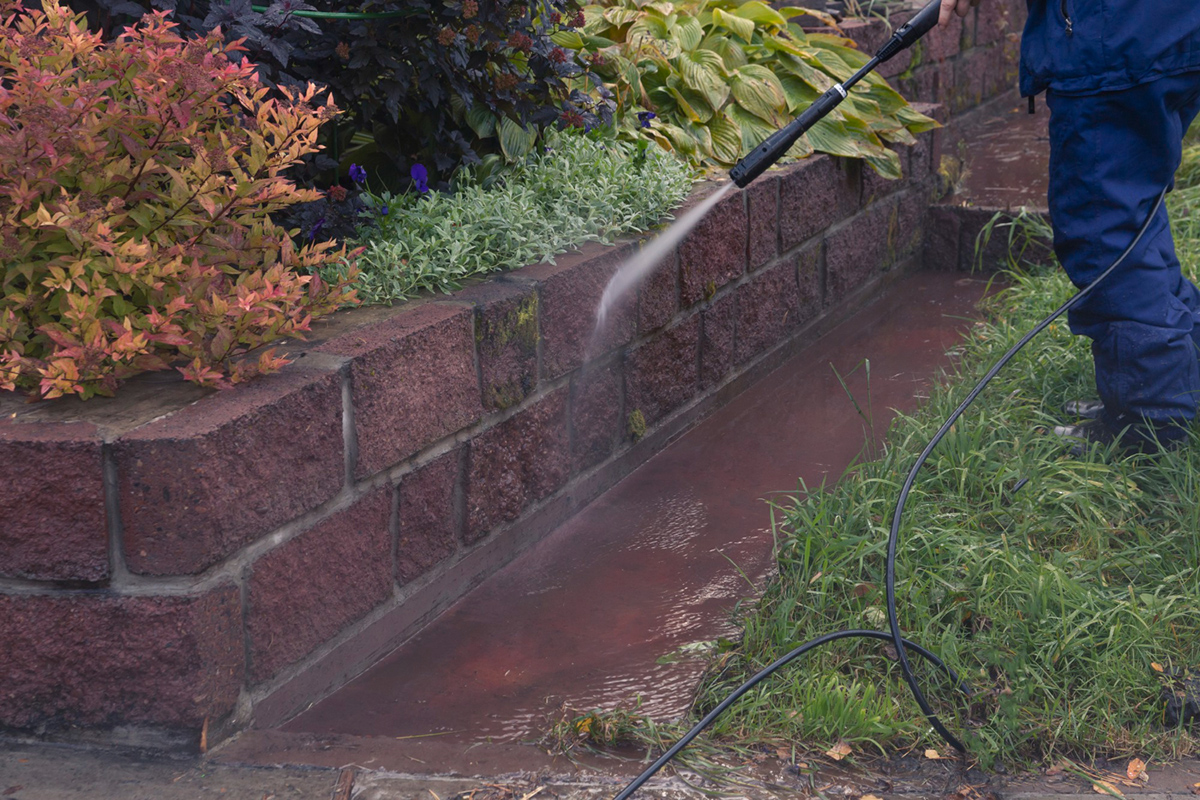Power Washing: A Vital Aspect to Home Maintenance
Upkeeping a house is an continuous chore that can at times feel overwhelming. One of the most effective ways to ensure your residence appearing its finest is through high-pressure cleaning. This method not only helps to boost the look of your property, but it also is essential in prolonging the lifespan of your outside areas. With the correct approaches and timeliness, pressure washing can change your property from drab and grimy to fresh and welcoming.
For those not acquainted to the idea, it can be a little intimidating to determine what to do first. What exactly is pressure washing do? How often should you engage in it? And should you employ a professional or handle the job by yourself? In this manual, we'll examine the key elements of pressure washing, from the gains it provides to tips on the best methods to execute it safely and efficiently. If Click for more info are looking to boost your curb appeal or preserve the equity of your residence, comprehending this technique is essential to efficient property upkeep.
Understanding Pressure Washing
Power washing is a powerful cleaning method that uses high-pressure water spray to remove debris, grime, mold, and various debris from various areas. It is often used on outer areas of properties, such as siding, terraces, driveways, and sidewalks. This method can effectively revitalize the aesthetic of areas and is frequently quicker and more effective than traditional cleaning techniques. For homeowners wanting to preserve their property’s aesthetic appeal, grasping the fundamentals of power washing is important.
The tools used for power washing consists of a motor, a pressurizer, and a hose nozzle that controls the stream of the spray. Water is warmed and pressurized, allowing it to infiltrate and dislodge tough blemishes. Different nozzles can adjust the intensity of the jet, making it suitable for various cleaning jobs. Novices should learn with how to operate power washers properly, guaranteeing they use the appropriate pressure levels for each type of material to minimize potential damage.
In addition to home cleaning, pressure washing also serves commercial applications. Stores can benefit from routine pressure washing to keep a clean storefront, enhance curb appearance, and enhance customer attraction. Grasping the different techniques and applications of pressure washing allows homeowners and store owners alike to make informed decisions about their cleaning needs, guaranteeing their locations remain in excellent condition. spintax ## Benefits of Professional Pressure Washing
Expert pressure washing services provide skill and experience that can significantly enhance the cleaning process. Skilled technicians understand how to effectively and safely operate pressure washing equipment, guaranteeing that every surface get the proper treatment. This level of knowledge minimizes the risk of harm that can occur with improper use of pressure washing tools, such as etching or stripping away paint. Additionally, professionals can spot areas that may need additional attention, providing a thorough job that DIY efforts might overlook.
Another advantage of hiring professionals is the convenience they offer. Pressure washing can be a labor-intensive task, especially for larger properties or complex surfaces. By delegating this work, homeowners can save valuable time and energy, enabling them to focus on other maintenance tasks or make the most of their free time. Moreover, professional services often come equipped with industrial-grade equipment and eco-friendly cleaning solutions, ensuring a deeper clean compared to typical consumer-grade machines available for lease or buy.
Lastly, specialist pressure washing can significantly improve the visual appeal of your home or business. A clean exterior not only enhances curb appeal but also creates a inviting environment for guests and potential buyers. Removing dirt, grime, mold, and other unsightly stains can make your property look cared for and kept up. This improvement can increase property value and draw more attention, making specialist pressure washing a wise investment for both home and business properties.
Comparing Pressure Washing Techniques
Regarding pressure washing, selecting the right technique for your particular cleaning requirements is essential. Two the most common methods are high-pressure washing and gentle washing. Pressure washing involves using high-pressure water to eliminate dirt, grime, and stubborn stains from surfaces such as driveways, sidewalks, and house exteriors.This method is highly effective for hard surfaces but can present a danger of damage to softer materials if not used correctly. On the other hand, soft washing employs low-pressure water mixed with specialized cleaning solutions to carefully clean sensitive surfaces without causing harm. This method is particularly suitable for roofs, painted surfaces, and wooden decks.
Understanding the differences between these techniques can help homeowners decide which one is most appropriate for their projects. Pressure washing is often suggested for tough tasks like removing grease from concrete or cleaning brick, where its power can truly shine. Conversely, soft washing excels in dealing with organic growth like mold, mildew, and algae, particularly on roofs and siding, where high pressure might compromise the integrity of the material. By assessing the type of surface and the nature of the grime, individuals can select the method that will yield the optimal results without causing damage.
In addition to pressure washing and soft washing, other methods such as steam cleaning and chemical cleaners can be taken into account based on specific cleaning requirements. Steam cleaning can disinfect surfaces efficiently and is often used for indoor areas, while chemical cleaners, when used responsibly, can tackle tough stains without the requirement for high pressure. Ultimately, the method you choose should match with your cleaning goals, the surfaces involved, and whether you prefer a DIY approach or the expertise of professional services.
